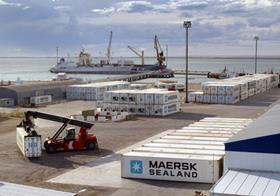
Exports of Argentinean deciduous fruits are estimated to drop to 765,000 tonnes this year, the USDA has reported, on the back of an anticipated decrease in the production of apples, pears and table grapes to 1.84m tonnes.
Overall production is set to dip by 6 per cent in comparison with 2007, as a result of severe frost damage at the end of last year, which has affected fruit quality.
Apple exports will fall to 250,000 tonnes, the USDA said, with a 9 per cent decrease in production to 990,000 tonnes, including a 30 per cent contraction of the Red Delicious harvest – the leading variety produced in Argentina.
Shipments of pears are also expected to fall to 440,000 tonnes, while production is estimated to fall to 700,000 tonnes after decreases in both the Bartlett and Anjou crops were not offset by the growth in Packham production.
Conversely, the USDA estimates grape export volumes will remain stable against last year, with production set to increase slightly to 150,000 tonnes, up from 140,000 tonnes in 2007.
The EU is on course to receive the bulk of Argentina’s apple, pear and grape volumes this year, followed closely by Brazil and Russia, with the US also taking an important share.
In 2007, the EU imported some 300,674 tonnes of deciduous fruit from Argentina, followed by Brazil with 179,481 tonnes, Russia (174,200 tonnes), the US (64,647 tonnes) and other markets (76,848 tonnes).



